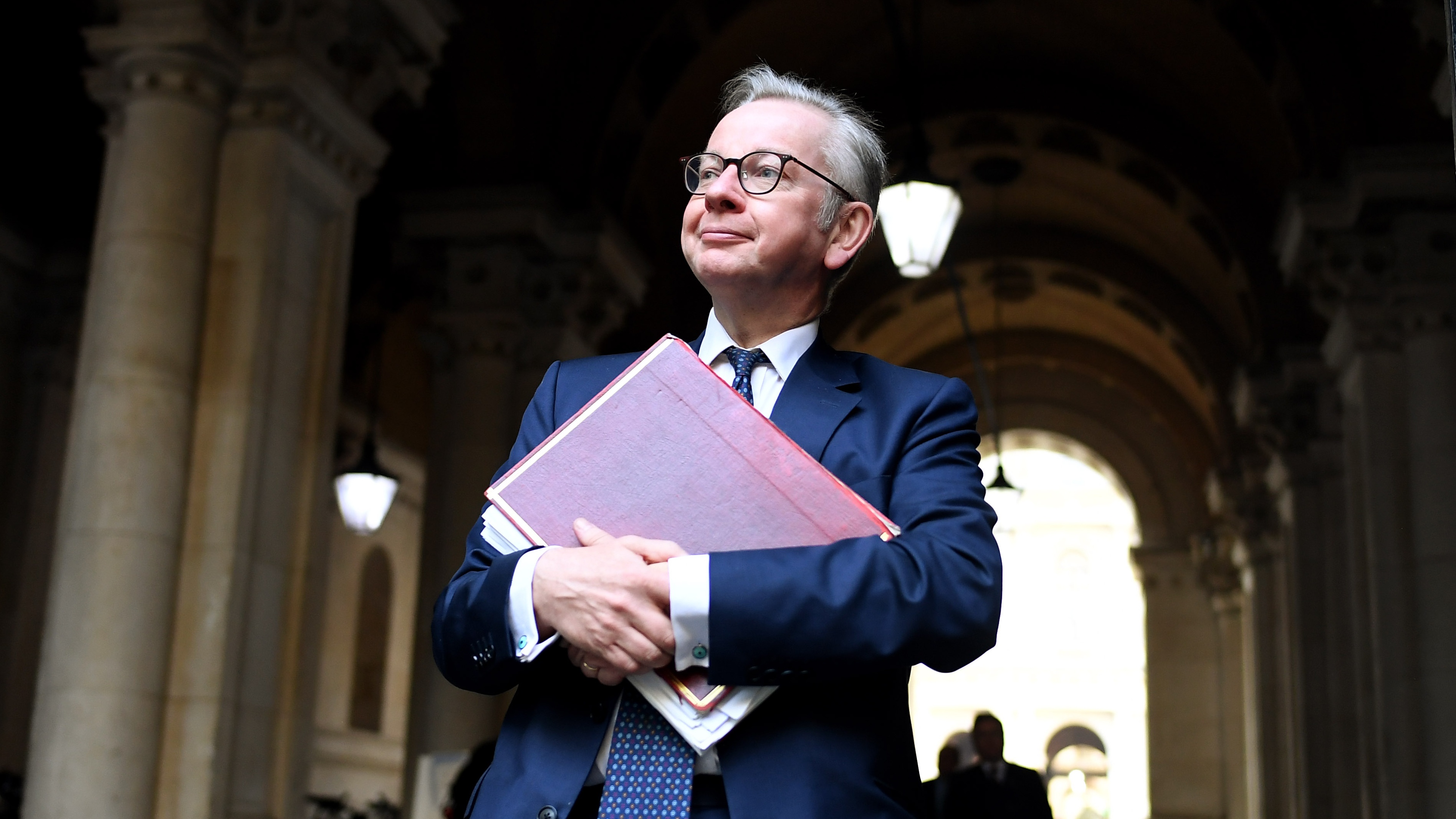Michael Gove: UK ‘firmness’ with Brussels paying off in Brexit talks
Minister performs ‘U-turn’ at Commons dispatch box following EU concessions

A free daily email with the biggest news stories of the day – and the best features from TheWeek.com
You are now subscribed
Your newsletter sign-up was successful
London’s “firmness” with Brussels is “bearing fruit” in the Brexit negotiations, Michael Gove has claimed.
The Cabinet Office minister’s comments came after Michel Barnier, the EU’s chief negotiator, seemingly agreed to the government’s demands for the resumption of Brexit talks yesterday.
As Gove delivered a statement to the Commons criticising the bloc, Bariner tweeted that he was ready to intensify trade talks “on all subjects, and based on legal texts”.
The Week
Escape your echo chamber. Get the facts behind the news, plus analysis from multiple perspectives.

Sign up for The Week's Free Newsletters
From our morning news briefing to a weekly Good News Newsletter, get the best of The Week delivered directly to your inbox.
From our morning news briefing to a weekly Good News Newsletter, get the best of The Week delivered directly to your inbox.
The tweet prompted what The Guardian describes as a “U-turn” from Gove, who praised the “constructive move” just minutes after declaring that the trade negotiations had “effectively ended”.
“Even while I have been at the dispatch box it has been reported that here has been a constructive move on the part of the EU and I welcome that,” he told MPs, adding that “I prefer to look forward in optimism rather than necessarily to look back in anger”.
Downing Street adopted a less optimistic tone, however.
A spokesperson said that “the UK has noted the EU’s proposal to genuinely intensify talks, which is what would be expected at this stage in a negotiation”, but added that No. 10 “continues to believe there is no basis to resume talks unless there is a fundamental change of approach from the EU”.
A free daily email with the biggest news stories of the day – and the best features from TheWeek.com
As the BBC’s Europe editor Katya Adler notes, “the last 24 hours have not played out as many a seasoned observer of this by now very, very, very long Brexit process might have imagined”.
“Political Twitter is exploding with theories: that Prime Minister Boris Johnson never really wanted a deal in the first place, that the EU threw away its chances to make a deal with missteps at last week's summit, or that the UK is overplaying its hand,” Adler reports.
Chas Newkey-Burden has been part of The Week Digital team for more than a decade and a journalist for 25 years, starting out on the irreverent football weekly 90 Minutes, before moving to lifestyle magazines Loaded and Attitude. He was a columnist for The Big Issue and landed a world exclusive with David Beckham that became the weekly magazine’s bestselling issue. He now writes regularly for The Guardian, The Telegraph, The Independent, Metro, FourFourTwo and the i new site. He is also the author of a number of non-fiction books.
-
 Will increasing tensions with Iran boil over into war?
Will increasing tensions with Iran boil over into war?Today’s Big Question President Donald Trump has recently been threatening the country
-
 Corruption: The spy sheikh and the president
Corruption: The spy sheikh and the presidentFeature Trump is at the center of another scandal
-
 Putin’s shadow war
Putin’s shadow warFeature The Kremlin is waging a campaign of sabotage and subversion against Ukraine’s allies in the West
-
 How corrupt is the UK?
How corrupt is the UK?The Explainer Decline in standards ‘risks becoming a defining feature of our political culture’ as Britain falls to lowest ever score on global index
-
 The high street: Britain’s next political battleground?
The high street: Britain’s next political battleground?In the Spotlight Mass closure of shops and influx of organised crime are fuelling voter anger, and offer an opening for Reform UK
-
 EU-Mercosur mega trade deal: 25 years in the making
EU-Mercosur mega trade deal: 25 years in the makingThe Explainer Despite opposition from France and Ireland among others, the ‘significant’ agreement with the South American bloc is set to finally go ahead
-
 Biggest political break-ups and make-ups of 2025
Biggest political break-ups and make-ups of 2025The Explainer From Trump and Musk to the UK and the EU, Christmas wouldn’t be Christmas without a round-up of the year’s relationship drama
-
 Who is paying for Europe’s €90bn Ukraine loan?
Who is paying for Europe’s €90bn Ukraine loan?Today’s Big Question Kyiv secures crucial funding but the EU ‘blinked’ at the chance to strike a bold blow against Russia
-
 ‘The menu’s other highlights smack of the surreal’
‘The menu’s other highlights smack of the surreal’Instant Opinion Opinion, comment and editorials of the day
-
 Moscow cheers Trump’s new ‘America First’ strategy
Moscow cheers Trump’s new ‘America First’ strategyspeed read The president’s national security strategy seeks ‘strategic stability’ with Russia
-
 Is a Reform-Tory pact becoming more likely?
Is a Reform-Tory pact becoming more likely?Today’s Big Question Nigel Farage’s party is ahead in the polls but still falls well short of a Commons majority, while Conservatives are still losing MPs to Reform